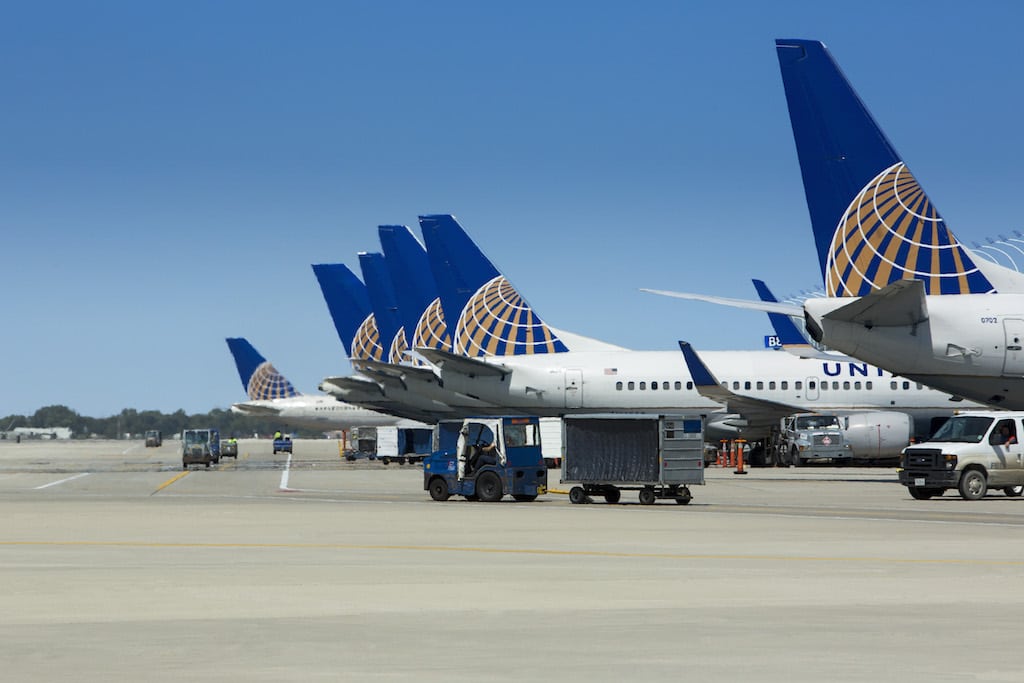Skift Take
In normal times, giant global network airlines don't cancel many flights for low load factors. They don't want to annoy high-value passengers, and they might need the airplane or crew at the next destination anyways. But United is now watching every penny.
In another sign United Airlines wants to conserve cash to withstand a protracted recovery, it has begun using a sophisticated algorithm to cancel flights within seven days of departure when load factors fall too low, provided it can accommodate passengers on other flights.
Along with considering whether customers can be rebooked, the system takes into account variables like where flight crew is needed and whether the airplane is required at the destination for a flight later in the day. Managers can overrule it when warranted, United said.
The program began August 14, and is being used on fewer than 1 percent of flights, most often on hub-to-hub routes or from hubs to other big markets, according to the airline. United claims 77 percent of affected customers arrived within four hours of their originally scheduled time, with one-third arriving early.
“Due to the frequently shifting Covid-19 environment, it can be difficult to predict customer demand when building schedules,” the airline told employees in an internal message. “To help preserve cash, we’re now recommending proactive mainline cancelations that focus on consolidating flights with a load factor below 30 percent.”
In normal times, the approach would be unusual for a full-service global airline like United. Most legacy carriers place an emphasis on schedule integrity, or flying exactly what they sell, unless mechanical or whether issues pop up. Even a flight with a low load factor might have a few high-value customers, airlines figure, and they don’t want to annoy them with a late cancelation.
But relatively few high-value customers are flying and business is not good, so that’s not the priority. Now, the airline wants to save money. “Although this process does impact our reliability, it helps us preserve cash for the long run,” United told employees.
United In The Minority
Since the pandemic began, United executives have spoken often about the importance of cost-cutting, even more than some competitors. So it is probably not surprising United is more aggressive with late cancelations than other airlines.
Officials with Delta Air Lines, American Airlines and Southwest Airlines all said their carriers are not making late cancelations because of low load factors. They can — and do — cut flights for sale as late as five or six weeks out, but they are considered schedule changes, rather than operational cancelations.
“We fly our schedule to keep the network intact,” Southwest spokesman Brian Parrish said. “We don’t proactively cancel flights based upon loads.”
Discount airlines may be more nimble with late cancelations, likely because they have fewer high-value customers to annoy. Allegiant Air has been making operational cancelations similar to United since the pandemic began, spokeswoman Hilarie Grey said.
“We do look for places where re-accommodation is possible (for example, where we fly a route several times weekly and can consolidate),” she said in an email. “When it comes to decision making on close-in cancels we’re balancing passenger counts, total revenue, one-way vs. round trip passengers, crew implications, day-of-week and a number of other factors.”
Samuel Engel, senior vice president and head of the aviation group at ICF, said while it might be unusual for a large network airline like United to build a cancelation algorithm for low-load flights, the strategy is reasonable, given the pandemic. With the federal payroll support program, or PSP, set to expire in about a month, he said all airlines may want to increase efficiencies.
“Airlines have always consolidated low-load flights from time to time,” he said. “Throughout the downturn, carriers quietly trimmed their schedules as they could. United is just being more open about their approach. With the PSP funding coming to an end, airlines may feel under less pressure to commit to service levels.”
The Daily Newsletter
Our daily coverage of the global travel industry. Written by editors and analysts from across Skift’s brands.
Have a confidential tip for Skift? Get in touch
Tags: covid-19, united airlines
Photo credit: United Airlines is canceling some flights at the last minute to save costs. United Airlines
